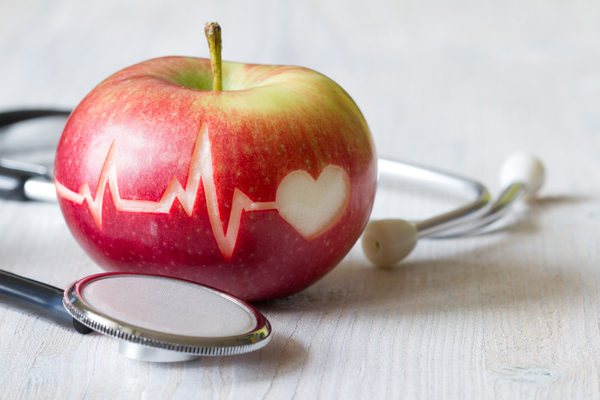How A Quarter In Your Freezer Can Save You From Food Poisoning
How having a quarter in your freezeer might save you from food poisoning.
Brilliant and simple
So I just stumbled across a cool little tip that is a game-changer for anyone in Massachusetts or New Hampshire. If you’re worried about losing power during a winter storm, or any time really. With all of the power outages we had after the last storm this is an absolute must and will only kind of make you look like a weirdo that is hording money in the Amana. Put a Quarter in your freezer!
Some genius on the “Old Recipes that Stir Childhood Memories” Facebook page – a title that’s a mouthful, I know – dropped this gem of advice.
Here’s the hack
Stick a quarter on a cup of frozen water and chuck it in your freezer. Sounds weird, right? But hear me out.
After the power goes out and comes back on, sneak a peek at that cup. If the quarter is still sitting pretty on top, like a king on his frozen throne, your food’s as good as gold. But if it’s sunk to the middle or the bottom, well, let’s just say your freezer had a bit of a meltdown. Your food might be playing a dangerous game of bacterial bingo.
Or, if you’re feeling adventurous, try this alternative: Freeze a bag of water, stand it up, and if you find it’s flopped over later, you know your freezer’s been on a little tropical vacation and brought you back a whole bunch of food poisoning as a souvenir.
This is crucial
Slapping a quarter on frozen water is pure, unadulterated genius. In a power outage, knowing if your freezer food is still in the safe zone is crucial. Especially if you’re like my neighbor Gary who stocks enough frozen food to survive an apocalypse. Gary I don’t care if the grid goes down, I’m not coming over to your house for roadkill stew.
It’s simple
If the quarter’s still on top, you’re in the clear. If not, well, it’s time to bid adieu to those frozen delights.
So yeah, hats off to the internet for this one. In a winter where power outages are more regular than my morning coffee, this little trick could be the peace of mind we all need.
Apples Are Packed With Sugar...So Are They Actually Healthy For You?
Apples are delicious, and that makes sense because they have a lot of sugar!
I’m a grown-up, but I’ve always been obsessed with apples even as a young child. There’s just something about them. Is it a New England thing? Because I love apple crisp, apple pie, apple turnovers, apple strudel, apple juice, apple cider and just plain old apples. Lately, my favorite way to eat apples is with some Teddie peanut butter. By the way, did you know that Teddie peanut butter is made right in Everett, MA? I always try and buy local when I can.
There’s a saying that goes, “An apple a day keeps the doctor away.” But does it really, or is it just a cute saying that rhymes? Lately, I found myself wondering if my “apple a day” was actually good for my health. Because shockingly, one apple is packed with so much sugar! And sugar in large quantities is not good for our health.

But does it? Apples contain a lot of natural sugars.
But Apples Have Natural Sugar – How Is That Different?
The distinction between natural sugars and other sugars lies in their source and chemical composition. Natural sugars are those that occur naturally in whole foods like fruits, vegetables, and dairy products. They are accompanied by essential nutrients, fiber, and other beneficial compounds that contribute to the overall nutritional value of the food. The fiber content helps slow down the absorption of sugar, preventing rapid spikes in blood glucose levels. Additionally, the nutrients in whole fruits provide various health benefits, supporting overall well-being.
On the other hand, “other sugars” often refer to added sugars, which are incorporated into food and beverages during processing or preparation. These sugars can include sucrose (table sugar), high-fructose corn syrup, and other sweeteners. Added sugars contribute sweetness to foods but are often associated with a range of health concerns when consumed excessively. Diets high in added sugars have been linked to issues such as obesity, type 2 diabetes, heart disease, and dental problems. The lack of accompanying nutrients and fiber in added sugars can contribute to overconsumption and negatively impact metabolic health.
If you want your hair to blow back, check out this blog I wrote about foods that are sold in the USA, but banned in other countries.
What Kind Of Apples Have The Most Natural Sugars?
As you can see, natural sugars are definitely better for you. But if you’re trying to limit even your natural sugar intake, here’s some of my favorite apples ranked by sweetness. I’m not a doctor or anything, but if you’re going to eat an apple, just keep it to one a day.
Jonathan Wier was born and raised in the Midwest and has loved radio since he was a little kid with crippling insomnia. He now happily finds himself in Boston doing mornings from 6-10am on Country 102.5. Jonathan likes to write personal stories about his family and travel.


